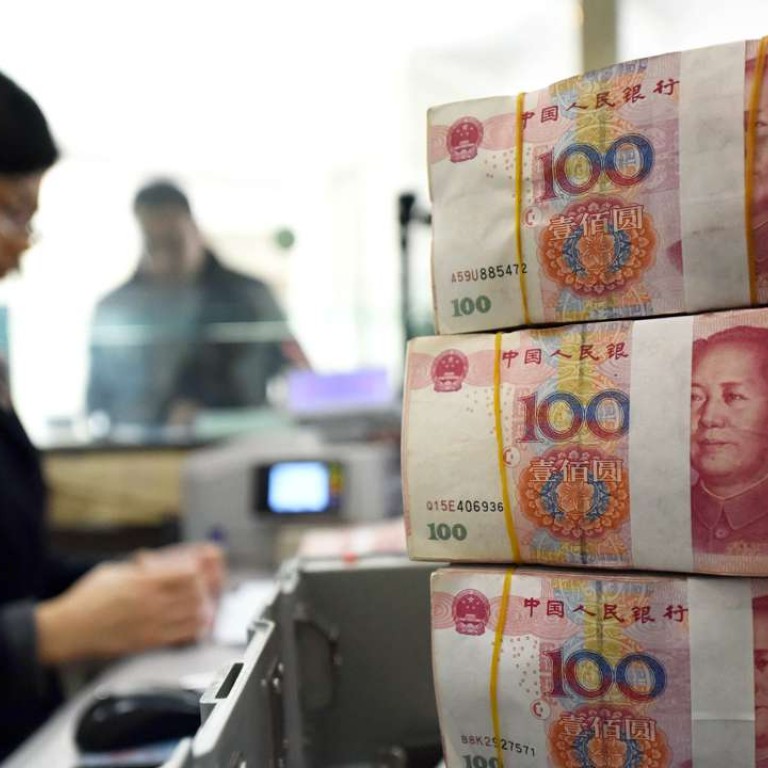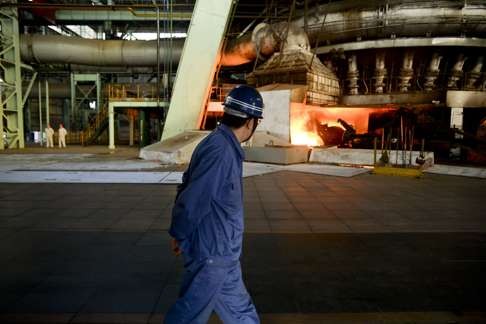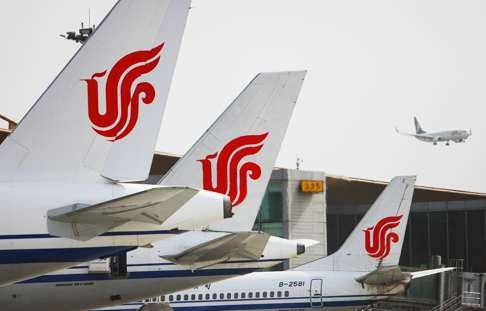
China’s property, airline sectors hit hard by volatile yuan; apparel and steel stocks among winners
China’s volatile yuan in the past 12 months has percolated through the economy and hit the A-share market, with stocks in the property, financial and airline sectors among the most affected, while some export-related industries have received a boost on improved price competitiveness, said analysts.
Since the People’s Bank of China abruptly depreciated the yuan by 1.9 per cent on August 11, 2015, the Chinese currency has dropped significantly against most of its major rivals. The yuan’s mid-point rate had weakened 8.6 per cent versus the US dollar as of Friday, while falling 10 per cent and 31 per cent respectively against the euro and the Japanese yen. The US, Europe and Japan are all China’s top trading partners.
Onshore yuan traded in Shanghai has weakened by 7.14 per cent against the US dollar from August 10 last year till Friday while offshore yuan traded in Hong Kong is also down 7.36 per cent against the US dollar during the same period.
The yuan’s abrupt drop last Augusttriggered a plunge in the A-share market. The Shanghai Composite Index dived 25 per cent within two weeks after the August 11depreciation and then fell further to a one-year low of 2850.71 on August 26. On Friday, the index edged down 0.2 per cent to close at 2,976.7.
“Basically, the weakening yuan has a negative impact on the stock markets in general, as yuan-denominated assets would depreciate in value and become less attractive,” said Ronald Wan, chief executive for Hong Kong-based Partners Capital International. “It could also trigger capital flight, straining the market liquidity and dealing a further blow to market sentiment.”

In the past 12 months, stocks of property developers and financial companies recorded heavy losses. The SSE Property Sub Index, a measure of real estate companies, has plummetted 20 per cent since August 11 last year. The SSE Financials Sector Index, which gauges the performance of Shanghai-listed financial companies, has lost 10.3 per cent during the same period.
Besides, as the weakening yuan percolated through the economy, companies with higher foreign currency debt would face more pressure on their earnings, as they have to pay more after the depreciation of the home currency, Wan said.
According to recent information from Wind Financial, A-share sectors with relatively higher US dollar-denominated debt include airlines, mining and shipping.
Among them, airline stocks posted significant drops. During the past year, China Eastern Airlines saw its Shanghai-listed shares plunge 40 per cent, while China Southern Airlines and Air China slumped 35 per cent and 30 per cent respectively.

Nonetheless, analysts said some export-related industries and companies with overseas businesses may have benefited from the declining yuan.
“The textile and apparel index has outperformed the CSI300 index in the past year, ” said Li Jie, an analyst from Everbright Securities.
The CSI300 index, which tracks large caps listed in the Shanghai and Shenzhen markets, has dropped 22 per cent in the past 12 months as of Friday.
“The accelerated pace in the yuan’s depreciation had a positive impact on the Chinese textile and apparel manufacturers, as a stronger US dollar has boosted their export revenues. In the longer term, they could also gain price competitiveness from the weakening yuan,” she said.
Li recommended Shenzhen-listed textile product producer Jiangsu Lianfa Textile and Shanghai-traded sock maker Zhejiang Jasan Holding.
As of Friday, stock of Jiangsu Lianfa Textile had increased 0.2 per cent in the past year, while Zhejiang Jasan Holding had lost 1.8 per cent, a minor loss compared with the 22 per cent drop in the CSI300 index during the same period.
Analysts from China International Capital Corp also said in a recent note that the yuan’s depreciation has boosted the competitiveness of Chinese steel.
“The yuan’s fall against the US dollar since June has made Chinese steel more competitive in its price, in particular against Japanese steel,” CICC analysts Chai Wei and Chen Yan wrote. “We expect steel imports to improve in the second half of the year.”
They recommended a “buy” for Hong Kong-listed Angang Steel and Shanghai-traded Yulong Steel Pipe.
Recent government statistics showed China’s steel exports jumped 23 per cent to 10.94 million metric tons.

